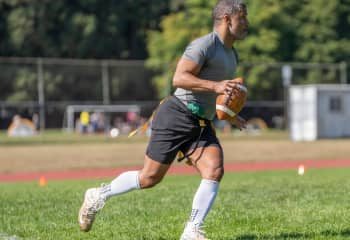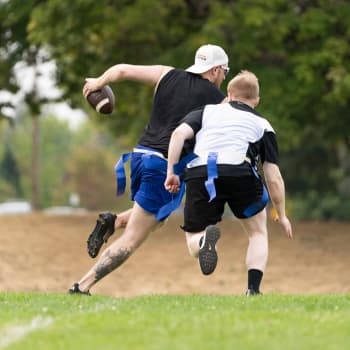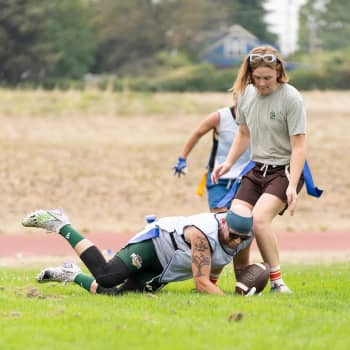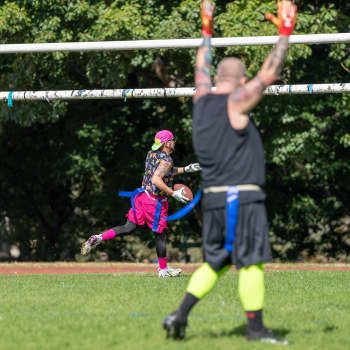Representation Matters
Sports like football carry a toxic amount of hyper-masculinity; in doing so, it isolates its LGBTQIA+ community.
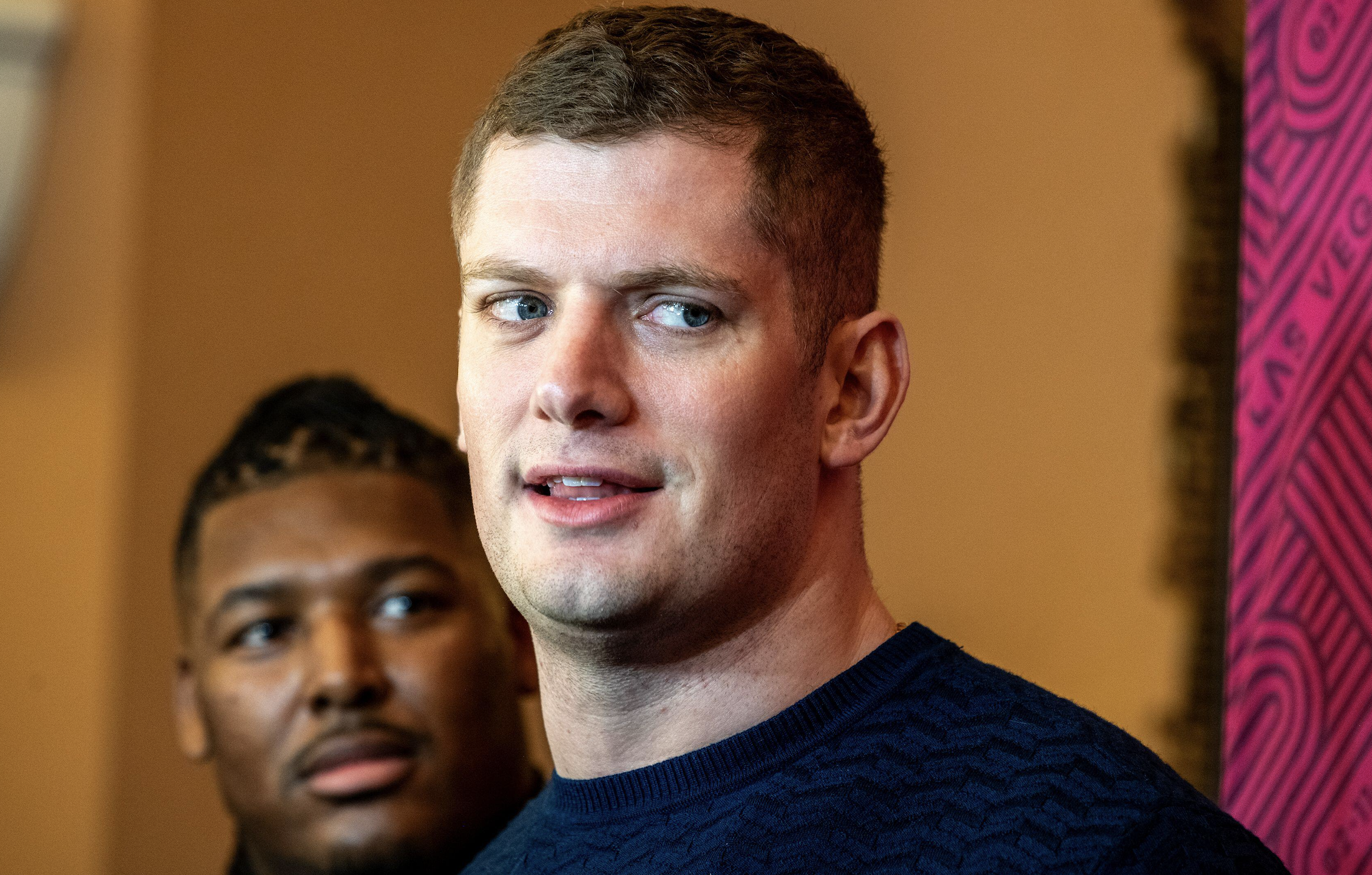
Homophobia is a disease across men’s sports that governing bodies do not care to amend. Look at Mexico, during the CONCACAF Nations League matches frequently get paused because of homophobic chants. All they got was a slap-on-the-wrist fine.
Look at the NBA, in 2022 Anthony Edwards was fined for using homophobic comments. He was fined $40,000 for his remark, pennies for a player who currently makes shy of $49 million a year.
Look at the NFL, they do not want to take real action in supporting the queer community. But, when June rolls around they will say they support the community, might make a donation, and will put up the rainbow colors. On July 1st, it goes away.
Derek Spears, the president of Oregon Alliance, a gay flag football league based out of Portland, Oregon. He wants the NFL to take considerable action as well. Pre-Presidential election he said: “This is where I want the NFL to put out there, we represent the LGBTQIA community, and we do not want Project 2025.
“We do not want anybody who stands against trans people, because these people represent it. So, this is where I want the stand to be taken, not just the NFL logo changing to our colors.”
One safe space for the queer community has been the National Gay Flag Football League (NGFFL), which Oregon Alliance is a part of. Across the United States and Canada there are 28 regional leagues that allow for queer men and women to be free and play a sport they enjoy.
Derek wanted to build a space for people that he did not have in the early 2000’s: “[This is] for gay men to play flag football because we were not safe in other leagues to be ourselves in the early 2000s.
“We are here to build community. We are here to create a space of belonging. We're here to have fun. Those other things are extraneous and they're interjects inside of a space.”
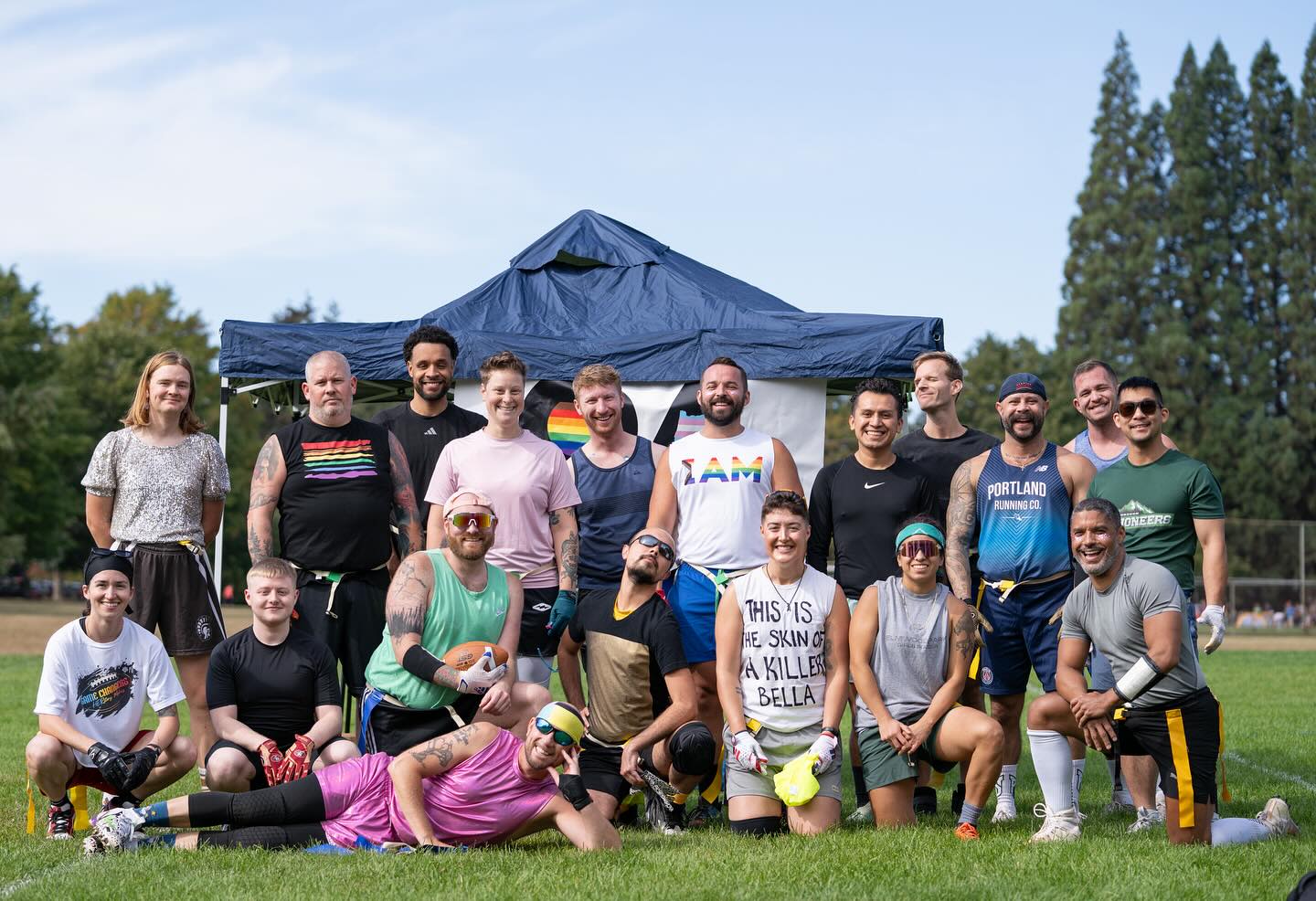
Hudson Taylor is the founder and executive director of Athlete Ally, one of the LGBTQIA+ organizations the NFL is partnered with.
Through his work Hudson has seen that leagues have started to do less to speak out against anti-LGBTQIA+ behavior. He said: “Over the last five years the number of like anti-LGBTQ bills in this country has increased by around 900 percent. So the comfort of leagues to condemn, to speak out, to challenge anti-LGBTQ behavior in a public forum in some ways has decreased.”
This discouraging behavior has not deterred Hudson and Athlete Ally’s initiative of making sports a safe space for the queer community: “With the NFL we have four categories. It's this matrix of Proactive, Reactive, Affirming, and Discouraging.”
Proactive Affirming
What are the proactive ways in which a league or the athletes or team is signaling to an LGBTQ athlete or fan that it is a safe, welcoming, and supportive environment.
Reactive Affirming
When somebody does come out, when something does happen that is worth celebrating, how is the league, how is the institute, how is a team, how are players, how are owners responding to that news in a way that is echoing and incentivizing that type of action or behavior for future athletes.
Proactive Discouraging
What are the policies and practices that are being put in place to disincentivize or hold people accountable when they behave in ways that are isolating, excluding, or endangering LGBTQ folks in sport.
Reactive Discouraging
When somebody does do something wrong, when somebody does cause harm, are they responding in a way that is actually holding people accountable.
Some teams in the NFL are better than the league at supporting the LGBTQIA+ community. The San Francisco 49ers are the only team with an affiliated pride group. The Los Angeles Rams and Chargers hosted pride events, while the Washington Commanders hosted the first official Pride Night by any NFL team.
Hudson said: “If we're measuring the cultural capital between sports American football doesn't have an equal. And so for a long time, there never were pride nights or anything pride affiliated when it came to games.
“I think that was, A, a missed opportunity and, B, a signal that maybe football wasn't as inclusive as the LGBTQ community would hope it would be. When you have teams that then choose to be really vocal and visible about their support and inclusion of the LGBTQ community, it matters.
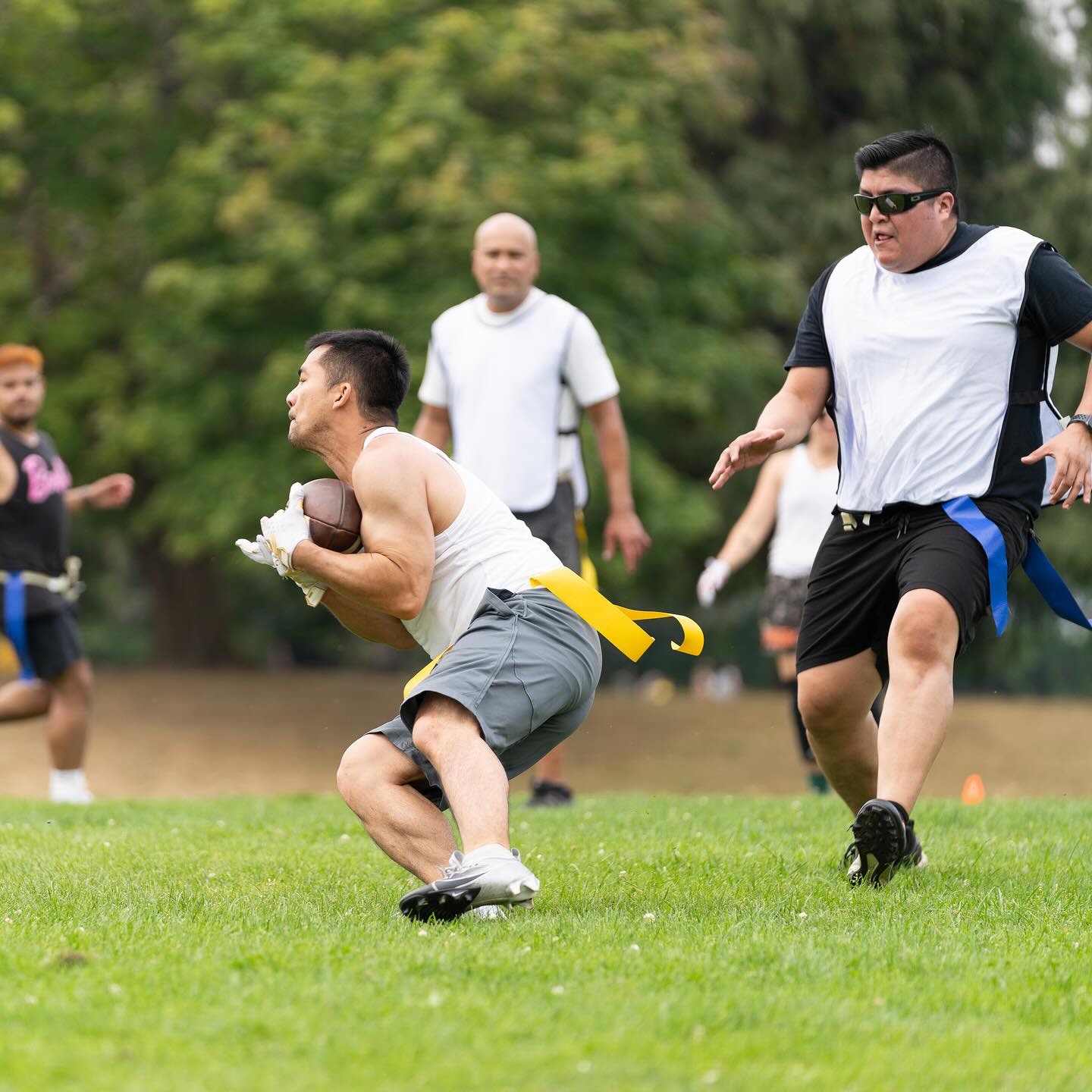
But in 2024, 11 teams refused to acknowledge pride month.
He also believes a key to derailing the “teeth” of homophobia is to see more men and women training and practicing together. He said: “Women's sports can give men's sports an opportunity to see femininity as a form of strength and to embrace this idea that there's no one way of being excellent, of being an athlete. Diversity is strength.
“The more we can get men and women training together, playing together, and seeing the value in each other, then the teeth that exist in a homophobic slur become duller.”
While the NFL has lacked in its support for the queer community, big cities have picked up their slack.
Gary Isaacs is the commissioner for LA Flag Football, the Los Angeles regional league associated with the NGFFL, and said: “The fact that [big cities] engage with leagues like ours, it validates us. Not that there's already not an audience for us, but it puts a spotlight on the fact that this is becoming a mainstream thing.
“Having a professional league, or the leagues in general, and the big cities supporting it just helps normalize it, which is very important.”
Gary also stresses the impact these leagues can make on its members: “And a lot of the people that have joined these leagues have become more comfortable with themselves. They become more comfortable outside of the league, going back to family members and friends and saying stuff that they might not have been comfortable saying. Being around a community that is so, naturally, who they are, it makes them feel like there's nothing wrong with them.”
Leagues a part of the NGFFL can be for straight allies as well, so when teams line up for each snap no one has any idea which players are straight and which might be gay. In those moments the grip homophobia has on sports deteriorates, it no longer has any solid foundation to root in.
Any fights that might break out are never stemmed from sexual orientation. Derek had to mediate a fight between a straight and gay player simply because one player hit the other in the head.
Derek said: “It was, you hit me in the head and why the fuck would you do that, don't ever do that again. I said, ‘but you should have asked for what you needed because if you asked him for an apology, he probably would have done it.’
“And what did he do after we finished the game? He went over and talked, he said, ‘I really just want an apology’ and the other guy was like, ‘Oh, I'm so sorry.’”
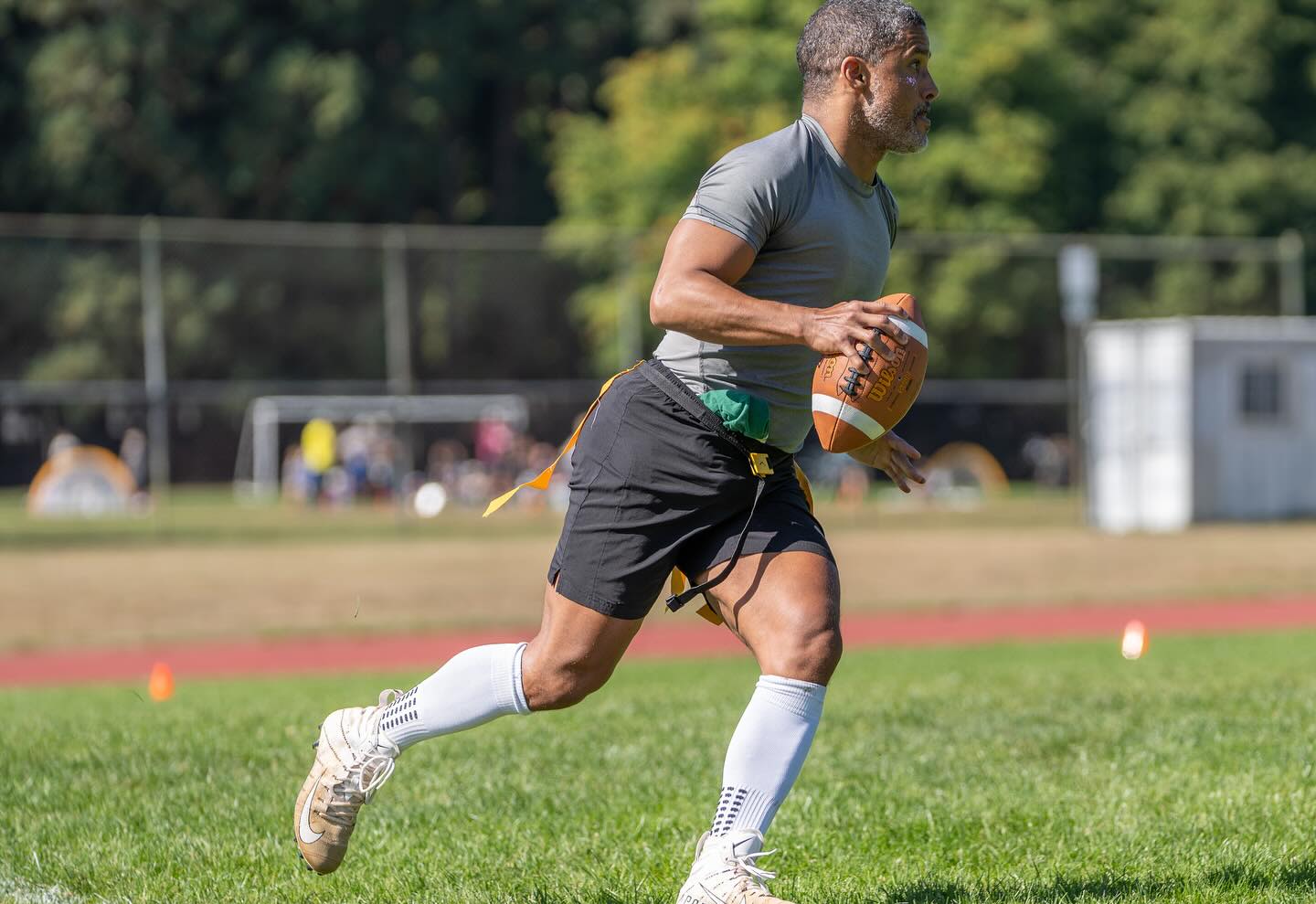
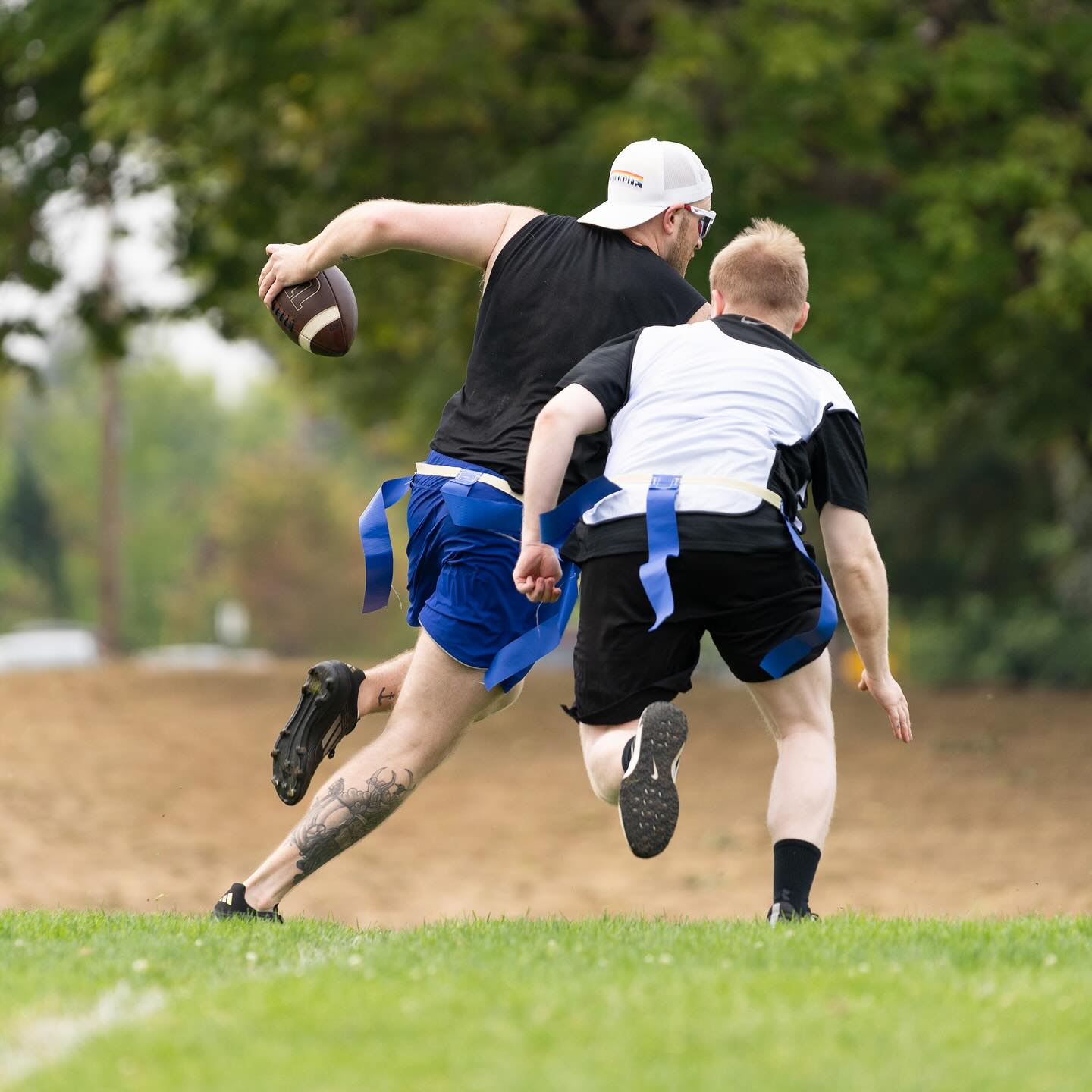
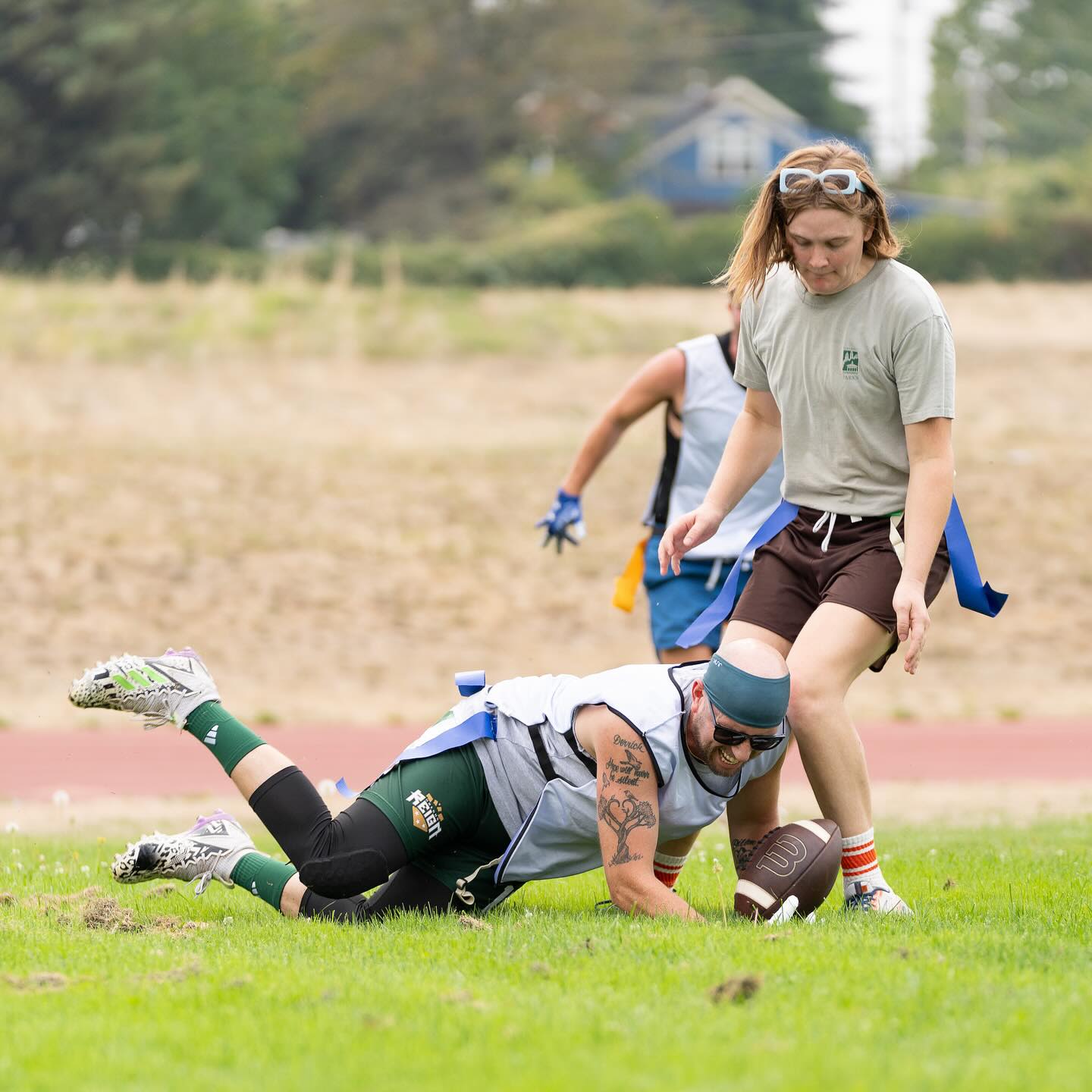
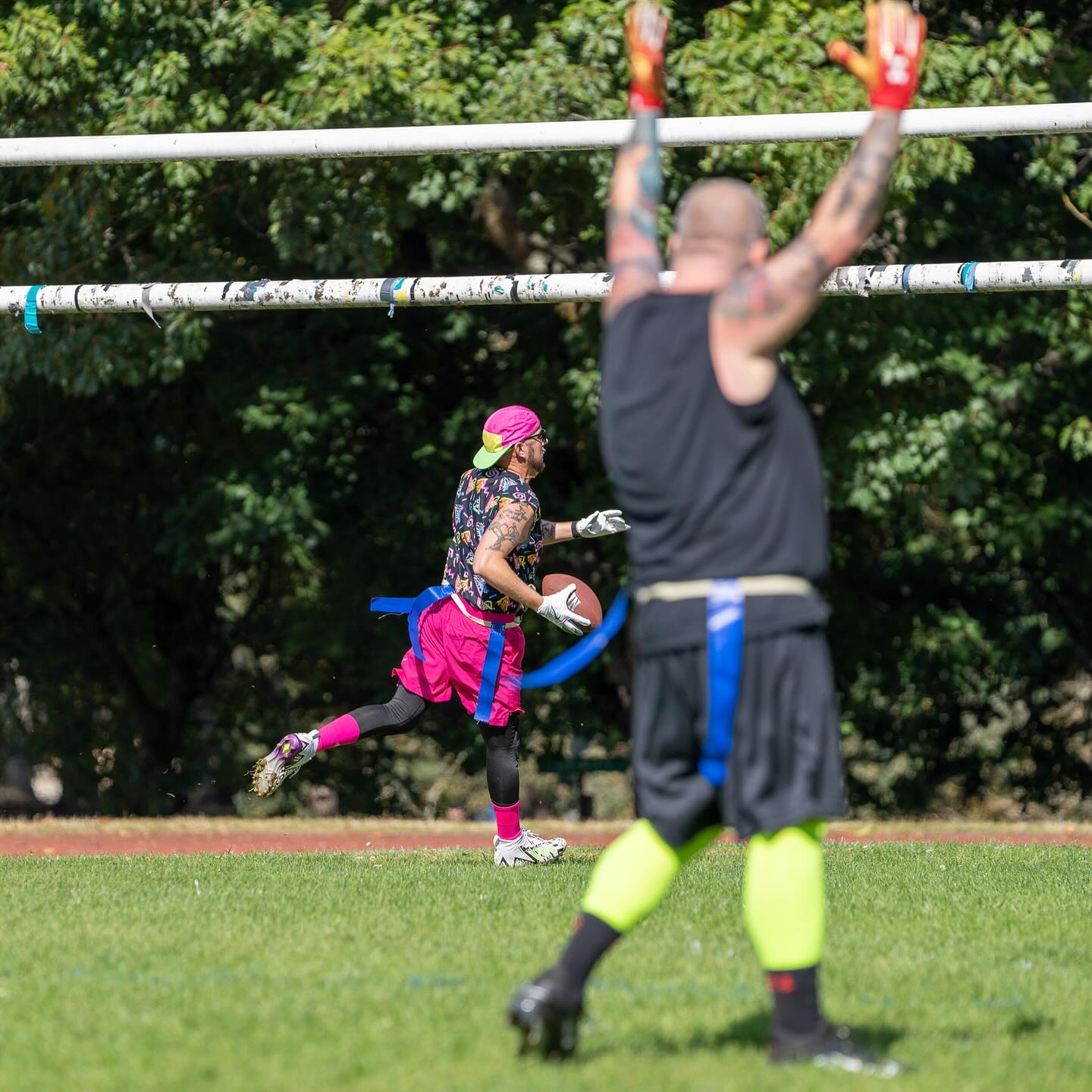
Derek said it best, “You should have asked for what you needed”. While seeing the lack of initiative by leagues like the NFL can be extremely disappointing, the LGBTQIA+ community needs to ask for more of what it wants and help direct the NFL in what will make the most impact.
Once teams, leagues, and corporations start doing what the queer community needs to feel seen and represented, real progress will start rooting. As a result, the fear people - not just athletes - have when accepting their sexuality will lessen and stigmas start to fade with it.

